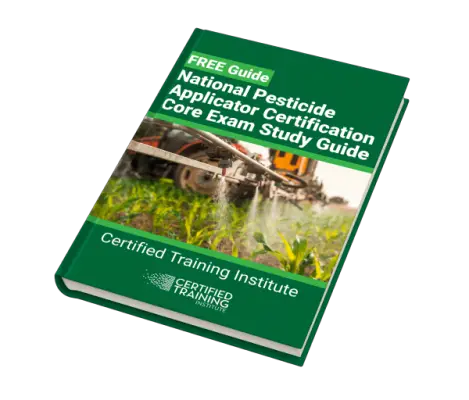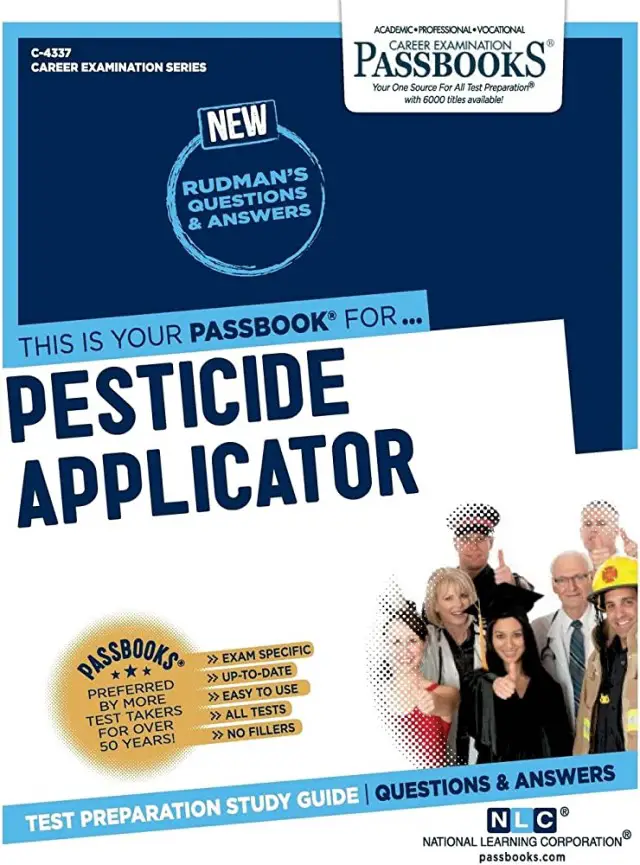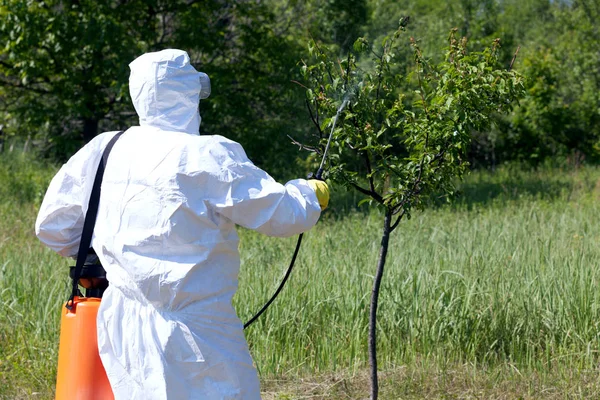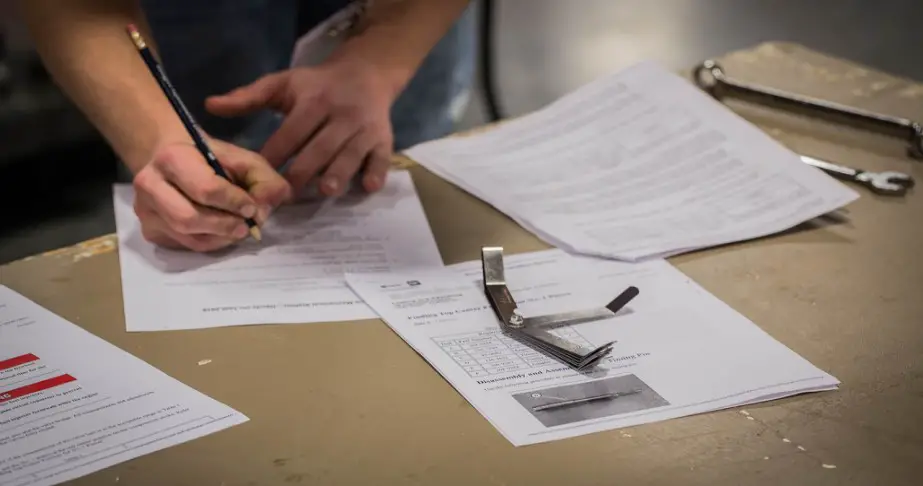If you’re considering a career in the agricultural or pest control industry, passing the pesticide applicator test is an essential step toward obtaining your license.
The test is designed to evaluate your knowledge and understanding of pesticide laws, safety protocols, application techniques, and environmental considerations.
Depending on your area of specialization, such as commercial, private, or aerial applicator, there are different types of tests you may need to take.
You may, however, find yourself wondering, “Just how hard is the pesticide applicator test?”
Sit back and relax, as you’ll find the answer to your question in this article.
How Hard is the Pesticide Applicator Test?
The pesticide applicator test presents challenges but it’s certainly within reach with dedicated preparation and effort.
The difficulty level of the test can vary depending on factors such as your prior knowledge and experience, study resources, and the complexity of the test content.
While it may be challenging, you can increase your chances of success with proper preparation and dedication.
Related: How Much Brushtox per Gallon of Water?
Factors that Contribute to the Difficulty of the Pesticide Applicator Test
They include the following.

Comprehensive Coverage
The test covers a wide range of topics, including laws and regulations, safety protocols, application techniques, environmental considerations, and pest management.
The depth and breadth of these subjects can make the test seem daunting.
However, by breaking down the content into manageable sections and studying systematically, you can tackle each area effectively.
Technical Knowledge
Certain aspects of the test, such as pesticide laws and regulations, can be quite technical and require a solid understanding of terminology, legal frameworks, and compliance requirements.
Familiarizing yourself with the relevant laws and regulations and seeking clarification on complex concepts can help overcome these challenges.
Scenario-Based Questions
The test often includes scenario-based questions where you need to analyze a given situation and apply your knowledge to choose the most appropriate course of action.
These questions require critical thinking skills and the ability to apply concepts in practical situations.
Practice with similar scenarios and develop a systematic approach to problem-solving to excel in this aspect.
Time Constraints
The pesticide applicator test typically has a time limit, which adds an element of pressure.
Managing your time effectively during the exam is crucial to ensure that you have sufficient time to read and answer all questions.
Familiarize yourself with the test format and practice time management techniques to optimize your performance.
Local Variations
It’s important to note that the difficulty level can also vary based on your geographical location.
Different states may have specific laws, regulations, and test formats.
Be sure to understand the requirements and content specific to your region and tailor your study plan accordingly.
Related: Mexican Landscapers: All You Need to Know
Topics Covered in the Pesticide Applicator Test

The test covers a wide range of topics related to pesticide application. It’s essential to familiarize yourself with the content to ensure you’re adequately prepared.
The major topic areas are outlined below.
Pesticide Laws and Regulations
Understanding the legal framework surrounding pesticide use, including federal, state, and local regulations.
Pesticide Safety and Handling
Knowledge of proper handling, storage, disposal, and personal protective equipment (PPE) usage.
Application Techniques and Equipment
Understanding different application methods, calibration, equipment maintenance, and proper mixing and dilution.
Environmental Considerations
Awareness of the potential impact of pesticides on the environment, including water and air quality, as well as strategies for minimizing environmental harm.
Pest Identification and Management
Identifying common pests, recognizing signs of infestation, and selecting appropriate pesticides and control methods.
Related: Landscape Architecture vs. Architecture
How to Prepare & Pass the Pesticide Applicator Test
Preparing for the test is a multi-faceted process that requires dedication and a well-structured study plan.
Here are some key steps to help you succeed.

Study Resources and Materials
Start by gathering high-quality study resources that cover the test topics comprehensively.
Look for recommended textbooks, publications, and study guides that align with the content areas of the exam.
These resources often provide detailed explanations, examples, and practice questions to help you grasp the material effectively.
Explore online courses and training programs specifically tailored for pesticide applicator exams.
These resources can provide structured learning modules, interactive quizzes, and additional support to enhance your understanding.
Develop an Effective Study Plan
A well-structured study plan is key to covering all the necessary content and allocating sufficient time to each topic area.
Begin by assessing your strengths and weaknesses in the various subject areas. Identify the topics that you find more challenging and allocate extra study time for those.
Create a study schedule that outlines specific study sessions for each topic, ensuring a balanced distribution of study time.
Be realistic about your study goals and maintain consistency in following your plan.
Retain and Understand the Material
Active learning techniques can significantly enhance your retention and understanding of the study material.
Consider taking detailed notes as you read through the resources, highlighting key points, and summarizing important concepts.
This process helps reinforce your understanding and provides a useful reference for later review.
You can use flashcards to quiz yourself on key terms, definitions, and important facts. Mnemonic devices can also be employed to aid in memorizing complex information.
Explaining concepts to others or teaching the material to yourself can further solidify your understanding.
Seek Guidance
Don’t hesitate to reach out to experienced professionals in the industry who have already passed the pesticide applicator test.
Their insights, advice, and personal experiences can be invaluable in your preparation journey.
They can provide practical tips, recommend study materials, and clarify any doubts you may have.
Joining online forums, attending industry events, or connecting with professionals through social media platforms can help you access a network of knowledgeable individuals who are willing to offer guidance and support.
Key Strategies for Success on Test Day
Exam day can be nerve-wracking, but with proper preparation and strategies, you can maximize your chances of success.
Consider the following tips.
Practical Exam Day Preparation
Ensure you have all the necessary documents, such as identification, admission tickets, and calculators, if permitted.
Get a good night’s sleep, eat a nutritious breakfast, and arrive at the test center early to minimize stress.
Managing Test Anxiety and Stress
Employ relaxation techniques, deep breathing exercises, and positive affirmations to calm your nerves.
Remember, you’ve put in the effort, and you’re prepared.
Time Management Techniques
Familiarize yourself with the exam structure and allocate time for each section accordingly.
Pace yourself throughout the test to ensure you have sufficient time to answer all questions.
Answering Multiple-Choice Questions Effectively
Read each question carefully, eliminate obviously incorrect options, and then select the best answer.
Be cautious of trick questions and pay attention to keywords and qualifiers.
Related
- Shadow Box Fence Pros and Cons
- Top 5 Freeman Framing Nailers Review
- Shadow Box Fence Vs Board on Board Fence (Side by Side Comparison)
- Board on Board Fence Pros and Cons
- Top 5 Types of Pillowcase Closures
- Unknown Advantages of Foam Paint Rollers
- How to Clean Algae off Landscape Rocks (Step-by-Step)
- Mexican Landscapers/Yard Workers: All You Need to Know
- How Much Brushtox per Gallon of Water? Depends on This


